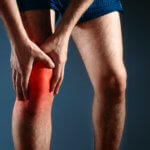
When it comes to antioxidants there is so much to know. Chances are high that you have heard that they are good for you and that you need to make sure that you eat foods that are rich in antioxidants as a way to stave off illnesses. In fact, you have probably even heard that eating a diet rich in antioxidants can help to fight off cancer. However, chances are high that you do not even really know what antioxidants are or what exactly they do in the body to help you stay healthy.
If you have purchased a product just because it states it is rich in antioxidants or if you added berries to your diet because you heard that you were supposed to, why not learn more about antioxidants and why they are considered to be super powered molecules. Here are 10 important facts that you should know about antioxidants.
1. What are Antioxidants?
Antioxidant enzymes are present in the body and offer protection from damage caused by free radicals. Antioxidant refers to molecules that will slow down or fight the oxidation process of chemicals that are harmful or dangerous. These chemicals may be found in the air as well as other materials throughout the environment. In fact, these harmful substances are found everywhere.
Foods that are dubbed as being super foods have a high amount of antioxidants. These foods can be added to a healthy diet in order to help the body fight off the free radicals that are absorbed into the body from the environment. It is important to make sure that you eat foods that are rich in antioxidants in order to help your body protect itself from the dangerous chemicals that are taken in. Some antioxidants can even help fight off cancer as well as other dangerous diseases.


